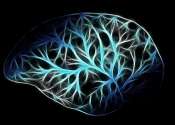Why visual stimulation may work against Alzheimer's
Several years ago, MIT neuroscientists showed that they could dramatically reduce the amyloid plaques seen Alzheimer's disease in mice simply by exposing the animals to light flickering at a specific frequency.
May 7, 2019
0
384








